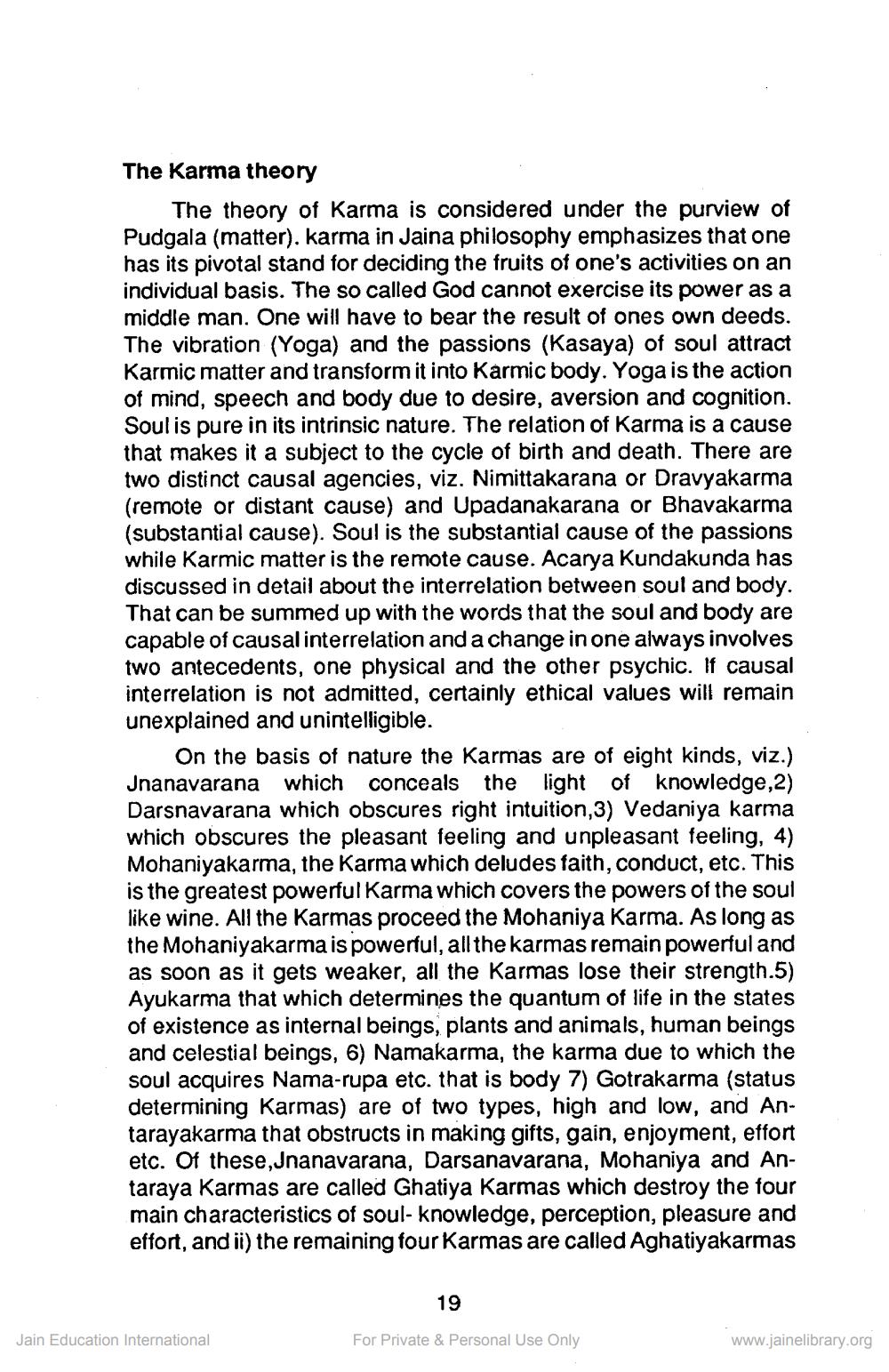________________
The Karma theory
The theory of Karma is considered under the purview of Pudgala (matter), karma in Jaina philosophy emphasizes that one has its pivotal stand for deciding the fruits of one's activities on an individual basis. The so called God cannot exercise its power as a middle man. One will have to bear the result of ones own deeds. The vibration (Yoga) and the passions (Kasaya) of soul attract Karmic matter and transform it into Karmic body. Yoga is the action of mind, speech and body due to desire, aversion and cognition. Soul is pure in its intrinsic nature. The relation of Karma is a cause that makes it a subject to the cycle of birth and death. There are two distinct causal agencies, viz. Nimittakarana or Dravyakarma (remote or distant cause) and Upadanakarana or Bhavakarma (substantial cause). Soul is the substantial cause of the passions while Karmic matter is the remote cause. Acarya Kundakunda has discussed in detail about the interrelation between soul and body. That can be summed up with the words that the soul and body are capable of causal interrelation and a change in one always involves two antecedents, one physical and the other psychic. If causal interrelation is not admitted, certainly ethical values will remain unexplained and unintelligible.
On the basis of nature the Karmas are of eight kinds, viz.) Jnanavarana which conceals the light of knowledge,2) Darsnavarana which obscures right intuition,3) Vedaniya karma which obscures the pleasant feeling and unpleasant feeling, 4) Mohaniyakarma, the Karma which deludes faith, conduct, etc. This is the greatest powerful Karma which covers the powers of the soul like wine. All the karmas proceed the Mohaniya Karma. As long as the Mohaniyakarma is powerful, all the karmas remain powerful and as soon as it gets weaker, all the karmas lose their strength.5) Ayukarma that which determines the quantum of life in the states of existence as internal beings, plants and animals, human beings and celestial beings, 6) Namakarma, the karma due to which the soul acquires Nama-rupa etc. that is body 7) Gotrakarma (status determining Karmas) are of two types, high and low, and Antarayakarma that obstructs in making gifts, gain, enjoyment, effort etc. Of these, Jnanavarana, Darsanavarana, Mohaniya and Antaraya Karmas are called Ghatiya Karmas which destroy the four main characteristics of soul- knowledge, perception, pleasure and effort, and ii) the remaining four Karmas are called Aghatiyakarmas
19
Jain Education International
For Private & Personal Use Only
www.jainelibrary.org




